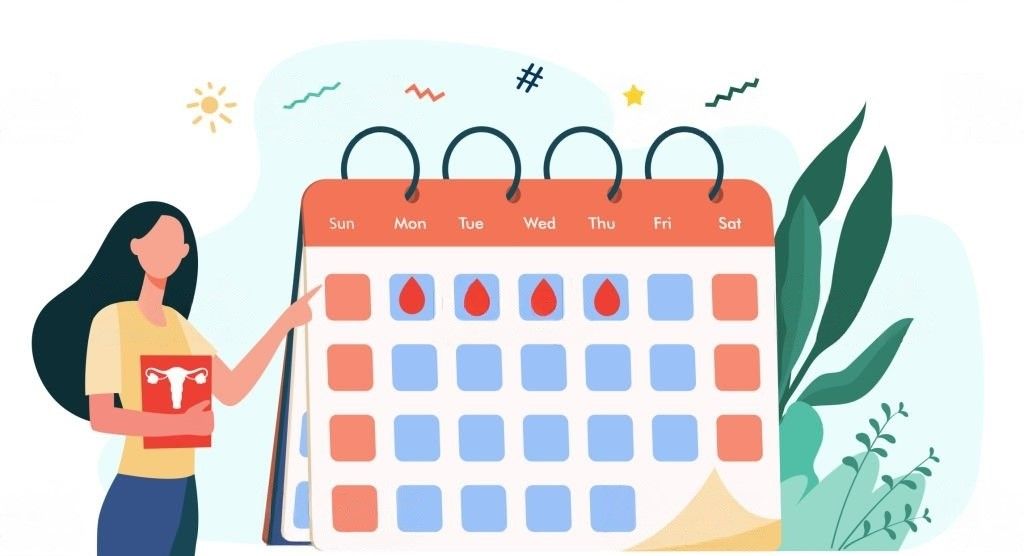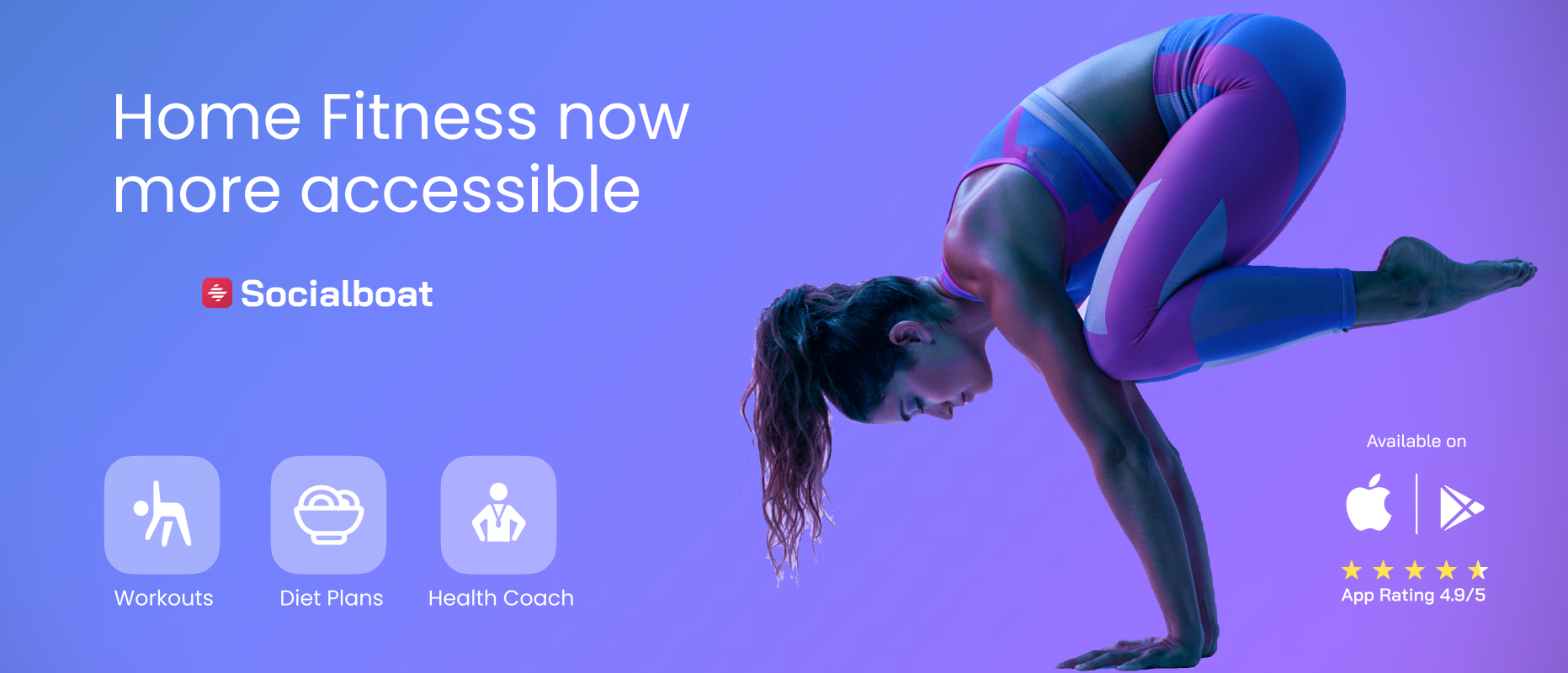What to Eat During Your Period: A Complete Guide
Boost menstrual health with an Indian diet rich in iron, calcium, magnesium, leafy greens, lentils, milk, and spices like turmeric and ginger.

Nutrition is extremely important in maintaining overall health during the menstrual cycle. The hormonal changes that occur during this time can affect appetite and food choices, so it's critical to watch what you eat. Proper nutrition during the menstrual cycle can boost energy levels, alleviate symptoms such as cramping and bloating, and improve mood and overall well-being. This article will discuss the importance of proper nutrition during the menstrual cycle and provide a meal plan for when you're on your period.
- Iron-rich foods:
- Include iron-rich foods such as leafy greens (spinach, kale, fenugreek), lentils, beans, tofu, and pumpkin seeds in your diet.
- Iron is essential during the menstrual cycle as it helps to support healthy blood flow and prevents anemia.
2. Calcium-rich foods:
- Consume calcium-rich foods like milk, yogurt, cheese, paneer, almonds, and sesame seeds.
- Calcium helps to reduce menstrual cramps and supports bone health.
3. Magnesium-rich foods:
- Include magnesium-rich foods such as whole grains (brown rice, millets), nuts (almonds, cashews), seeds (flaxseed, chia seeds), and dark chocolate.
- Magnesium can help reduce menstrual cramps, improve mood, and promote relaxation.
4. Vitamin B6-rich foods:
- Consume vitamin B6-rich foods such as bananas, chickpeas, chicken, fish, and brown rice.
- Vitamin B6 can help to reduce premenstrual syndrome (PMS) symptoms like bloating, irritability, and breast tenderness.
5. Vitamin D-rich foods:
- Consume vitamin D-rich foods like milk, eggs, and mushrooms.
- Vitamin D helps to improve mood, supports bone health, and can reduce PMS symptoms.
6. Hydrating foods:
- Include hydrating foods like cucumber, watermelon, oranges, tomatoes, and coconut water in your diet to stay hydrated during your period.
7. Spices:
- Use spices like turmeric, ginger, and cinnamon in your cooking as they have anti-inflammatory properties that can reduce menstrual pain and cramping.
Here is a guide to foods to avoid during periods:
- High-fat foods:
- Avoid consuming high-fat foods like fried foods, fast food, and processed foods during your period.
- These foods can worsen symptoms like bloating, cramps, and mood swings.
2. Salt:
- Limit your intake of salt during your period as it can lead to water retention and bloating.
- Avoid salty snacks like chips and popcorn, and reduce the amount of added salt in your meals.
3. Sugary foods:
- Try to limit your consumption of sugary foods like candy, cakes, and cookies during your period.
- High sugar intake can lead to mood swings and worsen PMS symptoms.
4. Caffeine:
- Limit your intake of caffeine during your period as it can increase anxiety and worsen menstrual cramps.
- Avoid coffee, tea, and energy drinks, and opt for decaffeinated versions or herbal teas instead.
5. Alcohol:
- Try to avoid consuming alcohol during your period as it can worsen mood swings and increase water retention.
- If you do choose to drink, do so in moderation and ensure you stay hydrated.
6. Processed foods:
- Processed foods like chips, crackers, and frozen meals often contain high amounts of sodium, sugar, and preservatives.
- Try to limit your consumption of processed foods during your period, and opt for whole foods like fruits, vegetables, and lean protein instead.
SUMMARY
A nutritious Indian diet plan during your period can provide essential nutrients like iron, calcium, magnesium, vitamin B6, and vitamin D. Include foods like leafy greens, lentils, milk, almonds, and bananas in your diet to support menstrual health. Additionally, hydrating foods like watermelon and cucumber, as well as spices like turmeric and ginger, can help reduce menstrual pain and cramping.
Jayti Shah is a Clinical Nutritionist with a master's degree in Clinical Nutrition and Dietetics. She is a member of the Indian Dietetic Association (IDA). Over the last 9 years, she has helped 400 clients in their clinical and weight loss journeys. She works with SocialBoat as a nutrition consultant.
At SocialBoat, we offer custom diet plans and guided workouts to help you achieve your goals in a 360-degree approach. Our gamified experience ensures that you don’t find workouts boring and we reward you for being consistent with your efforts.

REFERENCES
- Sharma, S., & Bhatnagar, S. (2021). Nutritional requirements of women with special reference to anemia during reproductive years. Journal of Mid-life Health, 12(2), 74–81.
- Kafle, P., & Shrestha, N. (2020). Dietary pattern and menstrual disorders among reproductive aged women in Nepal. PloS One, 15(10), e0240356.
- Gheibi, S., Kashanian, M., & Haghighi, M. M. (2019). Maternal diet and premenstrual syndrome: A case-control study. Journal of Obstetrics and Gynaecology Research, 45(3), 648–655.
- Sekhavat, L., Khosravi, A., & Haji Seid Javadi, E. (2017). A review on the role of nutrition in the prevention and management of premenstrual syndrome. Journal of Education and Health Promotion, 6, 31.
- Rao, S., & Joshi, S. (2015). Indian diet and polycystic ovary syndrome. Journal of Human Reproductive Sciences, 8(4), 191–197.
